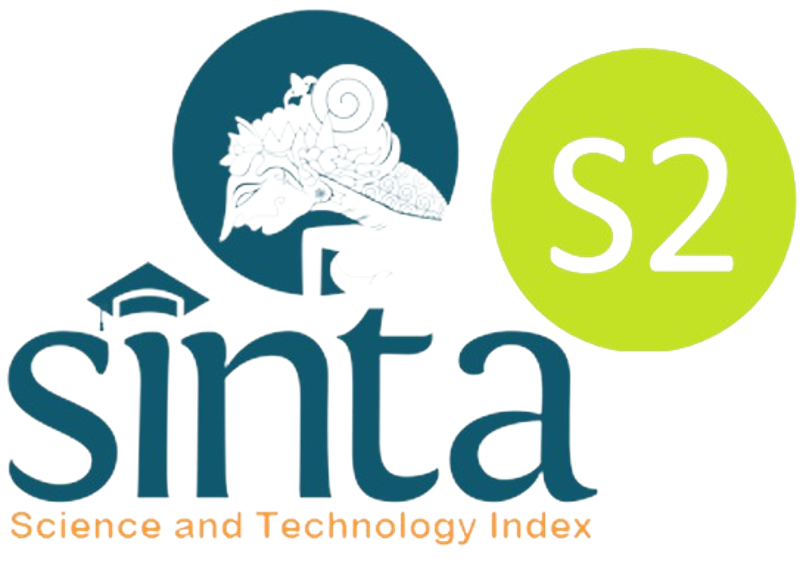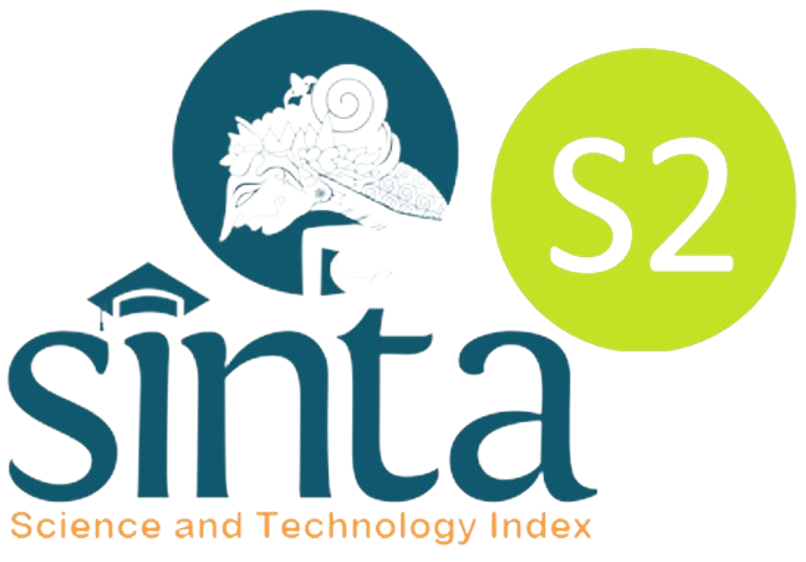THE EFFECT OF GUIDED-INQUIRY MODEL ON SCIENCE PROCESS SKILLS INDICATORS
DOI:
https://doi.org/10.26740/jpps.v8n1.p%25pKeywords:
Science Process Skills, Guided-InquiryAbstract
The aims of this research is to know the effect of Guided-Inquiry model on the indicators of science process skills, especially on Vibration and Waves Material. This research is done because of the importance of mastering indicators to identify the variables for students in experimenting. The research design which applied in this study was One-group Pre-test Post-test on 90 students of SMAN 1 Pasuruan. Data analysis technical using N-gain. For Class XI IPA 1 has an average N-Gain was 0,44. Ro Class XI IPA 2 has an average N-Gain was 0,47. Meanwhile for Class XI IPA 3 has an average N-Gain was 0,48. N-Gain was calculated based of pre-test and post-test results using the Science Process Skills Test, the results showed that there was a significant improvement of the students' science-process skill indicator for all three classes with N-gain score was 0.49. So, Guided-Inquiry model provide a good effect on the science process skill indicator on Vibration and Waves MaterialDownloads
Download data is not yet available.
References
Arends, R. (2012). Learning to teach, 9th edition. New York: Mc-Graw Hill.
Arends, R. I. (2013). Belajar Untuk Mengajar (Learning to teach). Jakarta : Salemba Humanika.
Bell, R. L. (2005). Simplifying Inquiry Instruction : Assesing the inquiry level of classroom activities. Journal of The Science Teacher, No 7, 30-33
Bilgin, I. (2009). The Effect of Guided Inquiry Instruction Incorporating a Cooperative Learning Approach on University Students Achievement of Acid and Bases Concepts and Attitude Toward Guided Inquiry Instruction. Scientific Research and Essay Academic Journals, Vol.4 (10), p. 1038-1046
Griffin P and Care E. (2015) Assessment and teaching of 21st century skills (New York: Springer).
Hake. (1998). Am. J. Phys. 66 64
Ibrahim, M. (2012). Dasar-dasar Proses Belajar Mengajar. Surabaya : Unesa University Press.
Ifeoma & Oge. (2013). Effect of Guided Inquiry Method On Secondary School Students ˜ Performance in Social Studies Curriculum in Anambra State, Nigeria. British Journal of Education, Society and Behavioural Science. 3(3). 206-222. Diunduh dari http://www.sciencedomain.org./
Kementerian Pendidikan dan Kebudayaan (2014). Peraturan menteri Pendidikan dan Kebudayaan No. 58 Tahun 2014 tentang panduan penilaian untuk SMA/MA. Jakarta. Kemendikbud.
Nur, M. (2011c). Modul Keterampilan-Keterampilan Proses Sains. Surabaya : Pusat Sains dan Matematika Sekolah Universitas Negeri Surabaya
Muhibbin Syah. (2010). Psikologi Pendidikan dengan pendekatan baru.Bandung:PT Remaja Rosdakarya
Nworgu dan Otum. (2013). Effect of Guided Inquiry with Analogy Instructional Strategy on Students Acquisition of Science Process Skills. Journal of Education and Practice. 27(4). 35-40. Diunduh dari http://www.ejmste.com/
N Y Rustaman (2005) Perkembangan Penelitian Pembelajaran Berbasis Inkuiri Dalam Pendidikan Sains (Bandung: Universitas Pendidikan Indonesia)
R Darwis. & N Rustaman. (2015). Pembelajaran Berbasis Inkuiri dengan Aktivitas Laboratorium untuk Meningkatkan Keterampilan Proses Sains Siswa SMP,Jurnal Pendidikan IPA Indonesia, 4 (1): 4650.
Sabahiyah. (2013). Pengaruh Model Pembelajaran Inkuiri Terbimbing Terhadap Keterampilan Proses Sains dan Penguasaan Konsep IPA Siswa Kelas V Gugus 03 Wonasaba Lombok Timur (3)
Sevilay Karamustafaoglu. (2003). Analysis of Turkish High School Chemistry Examination Question According to Blooms taxonomy.Dalam Chemistry 136 Edication: Recearch and Practice [Online], Vol 4, no 1, pp. 25-30. http://www.uoi.gr/Diakses pada tanggal 24 April 2018
Sheeba, M N. ( 2013). An Anatomy of Science Process Skills in The Light of the Challenges to Realize Science Instruction Leading to Global Excellence in Education. Educationia Confab Journals.Vol. 2, No. 4. 108-123.
Slavin, E. R. (2011). Educational psychology.theory and practice.USA: Pearson.
Sugiyono. (2014). Metode Penelitian Pendidikan (Pendekatan Kuantitatif, Kualitatif dan R&D). Bandung: Alfabeta.
Sukarno, Permanasari, A., & Hamidah, I. (2013). The Profile of Science Process Skill (SPS) Student atJunior High School.International Journal of Scientific Engineering and Research.1(1). 2347-3878.
Tjalla, Awaludin. (2009). Potret Mutu Pendidikan Indonesia Ditinjau dari Hasil-Hasil Studi Internasional. http://pustaka.ut.ac.id/pdfartikel/TIG601.pdf.
Wenning, C, J & R Wenning. (2006). A generic model for inquiry oriented labs in post secondary introductory Physics. Journal of Physics Teacher Education Online. Vol. 2 (3), Illinois State University Physics Dept.
Wenning, Carl J. (2007). Assessing inquiry skills as a component of scientific literacy.Journal of Physics Teacher Education Online. Vol. 5 (4), Illinois State University Physics Dept.
Wenning Carl J. (2010). Levels of inquiry: Using inquiry spectrum learning sequences to teach science. Journal of Physics Teacher Education Online. Vol. 4 (2), Illinois State University Physics Dept
Arends, R. I. (2013). Belajar Untuk Mengajar (Learning to teach). Jakarta : Salemba Humanika.
Bell, R. L. (2005). Simplifying Inquiry Instruction : Assesing the inquiry level of classroom activities. Journal of The Science Teacher, No 7, 30-33
Bilgin, I. (2009). The Effect of Guided Inquiry Instruction Incorporating a Cooperative Learning Approach on University Students Achievement of Acid and Bases Concepts and Attitude Toward Guided Inquiry Instruction. Scientific Research and Essay Academic Journals, Vol.4 (10), p. 1038-1046
Griffin P and Care E. (2015) Assessment and teaching of 21st century skills (New York: Springer).
Hake. (1998). Am. J. Phys. 66 64
Ibrahim, M. (2012). Dasar-dasar Proses Belajar Mengajar. Surabaya : Unesa University Press.
Ifeoma & Oge. (2013). Effect of Guided Inquiry Method On Secondary School Students ˜ Performance in Social Studies Curriculum in Anambra State, Nigeria. British Journal of Education, Society and Behavioural Science. 3(3). 206-222. Diunduh dari http://www.sciencedomain.org./
Kementerian Pendidikan dan Kebudayaan (2014). Peraturan menteri Pendidikan dan Kebudayaan No. 58 Tahun 2014 tentang panduan penilaian untuk SMA/MA. Jakarta. Kemendikbud.
Nur, M. (2011c). Modul Keterampilan-Keterampilan Proses Sains. Surabaya : Pusat Sains dan Matematika Sekolah Universitas Negeri Surabaya
Muhibbin Syah. (2010). Psikologi Pendidikan dengan pendekatan baru.Bandung:PT Remaja Rosdakarya
Nworgu dan Otum. (2013). Effect of Guided Inquiry with Analogy Instructional Strategy on Students Acquisition of Science Process Skills. Journal of Education and Practice. 27(4). 35-40. Diunduh dari http://www.ejmste.com/
N Y Rustaman (2005) Perkembangan Penelitian Pembelajaran Berbasis Inkuiri Dalam Pendidikan Sains (Bandung: Universitas Pendidikan Indonesia)
R Darwis. & N Rustaman. (2015). Pembelajaran Berbasis Inkuiri dengan Aktivitas Laboratorium untuk Meningkatkan Keterampilan Proses Sains Siswa SMP,Jurnal Pendidikan IPA Indonesia, 4 (1): 4650.
Sabahiyah. (2013). Pengaruh Model Pembelajaran Inkuiri Terbimbing Terhadap Keterampilan Proses Sains dan Penguasaan Konsep IPA Siswa Kelas V Gugus 03 Wonasaba Lombok Timur (3)
Sevilay Karamustafaoglu. (2003). Analysis of Turkish High School Chemistry Examination Question According to Blooms taxonomy.Dalam Chemistry 136 Edication: Recearch and Practice [Online], Vol 4, no 1, pp. 25-30. http://www.uoi.gr/Diakses pada tanggal 24 April 2018
Sheeba, M N. ( 2013). An Anatomy of Science Process Skills in The Light of the Challenges to Realize Science Instruction Leading to Global Excellence in Education. Educationia Confab Journals.Vol. 2, No. 4. 108-123.
Slavin, E. R. (2011). Educational psychology.theory and practice.USA: Pearson.
Sugiyono. (2014). Metode Penelitian Pendidikan (Pendekatan Kuantitatif, Kualitatif dan R&D). Bandung: Alfabeta.
Sukarno, Permanasari, A., & Hamidah, I. (2013). The Profile of Science Process Skill (SPS) Student atJunior High School.International Journal of Scientific Engineering and Research.1(1). 2347-3878.
Tjalla, Awaludin. (2009). Potret Mutu Pendidikan Indonesia Ditinjau dari Hasil-Hasil Studi Internasional. http://pustaka.ut.ac.id/pdfartikel/TIG601.pdf.
Wenning, C, J & R Wenning. (2006). A generic model for inquiry oriented labs in post secondary introductory Physics. Journal of Physics Teacher Education Online. Vol. 2 (3), Illinois State University Physics Dept.
Wenning, Carl J. (2007). Assessing inquiry skills as a component of scientific literacy.Journal of Physics Teacher Education Online. Vol. 5 (4), Illinois State University Physics Dept.
Wenning Carl J. (2010). Levels of inquiry: Using inquiry spectrum learning sequences to teach science. Journal of Physics Teacher Education Online. Vol. 4 (2), Illinois State University Physics Dept
Downloads
Published
2018-12-03
How to Cite
Wijayaningputri, A. R., Widodo, W., & Munasir, M. (2018). THE EFFECT OF GUIDED-INQUIRY MODEL ON SCIENCE PROCESS SKILLS INDICATORS. JPPS (Jurnal Penelitian Pendidikan Sains), 8(1). https://doi.org/10.26740/jpps.v8n1.p%p
Issue
Section
Implementation of Digital Technology in Science Education
 Abstract views: 1704
,
Abstract views: 1704
, PDF Downloads: 1096
PDF Downloads: 1096












